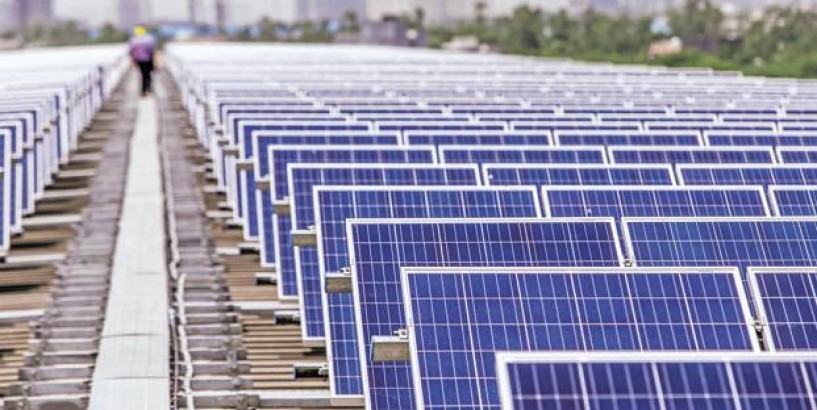MUMBAI: The solar industry is wary about the government rules regarding use of only locally made products in 12 gigawatts (GW) of forthcoming solar projects as these may run foul of World Trade Organization (WTO) rules. Various industry leaders said that they are studying the announcements before making any investment.
The concerns come in the wake of the Union cabinet approving, earlier this week, a plan to award 12GW of upcoming grid-connected solar power projects that will be powered exclusively by locally manufactured cells and modules and set up by government producers over a four-year period, from 2019-20 to 2022-23. The project will be implemented with viability gap funding of ₹ 8,580 crore.
The move will lead to an investment of ₹ 48,000 crore and will support domestic manufacturers of solar cells and modules, according to a government statement.
The project would provide direct employment to around 60,000 people for about one year in pre-commissioning activities/construction phase and around 18,000 people for about 25 years in the operation and maintenance period, the government said.
In addition, more than 120,000 additional employment opportunities will be created for people involved in setting up solar power projects and also in manufacturing locally produced cells and modules.
In September 2016, the US dragged India to the WTO for attempting much the same through its “domestic content requirements", or localization rules, that were part of the Jawaharlal Nehru National Solar Mission. The US contended that these rules discriminated against US solar module makers and favoured local products over imported ones. India lost the case at WTO.
“While on the face of it, the proposal is set to provide relief to solar domestic manufacturers for the next four years, even with immediate implementation, the on-ground reality indicates a gestation period of at least a year till this proposal actually yields operational benefits. On the up side, this proposal is bound to attract foreign investment," said Sunil Rathi, director, Waaree Energies.
“We welcome all steps to enhance and support manufacturing in the country," said Ashish Khanna, chief executive and managing director, Tata Power Solar Systems. Tata Power operates as both a manufacturer of solar cells and modules and a power producer that sets up large solar farms. “To invest and build capacity to produce modules, one needs long-term visibility. Let us wait and watch how this proposal translates into actual business for Indian manufacturers," he said.
“We are still studying the proposal. Our board will take a call on the matter," said Shashi Shekhar, vice-chairman, ACME Group, a solar industry independent power producer. “Yes, the government is trying to push manufacturing in the country. Earlier, they had insisted on manufacturing solar ingots and wafers (which go into making solar cells and modules) but the new project only mentions cells and modules. The commerce ministry is likely to have made sure that this time the proposal complies with WTO requirements," Shekhar said.
A spokesperson the ministry of commerce had not responded to queries on this proposal till the time of going to print.
“A government can incentivise its own domestic products in their government procurement, because it is assumed that a government doesn’t profit from business, according to the WTO guidelines," said a senior industry executive who did not want to be named.
However, at the WTO, India failed to prove that the procurement was for government use only. In the current proposal as well, the press release says that the projects are to be set up for “self-use or use by government or government entities, both central and state governments."









